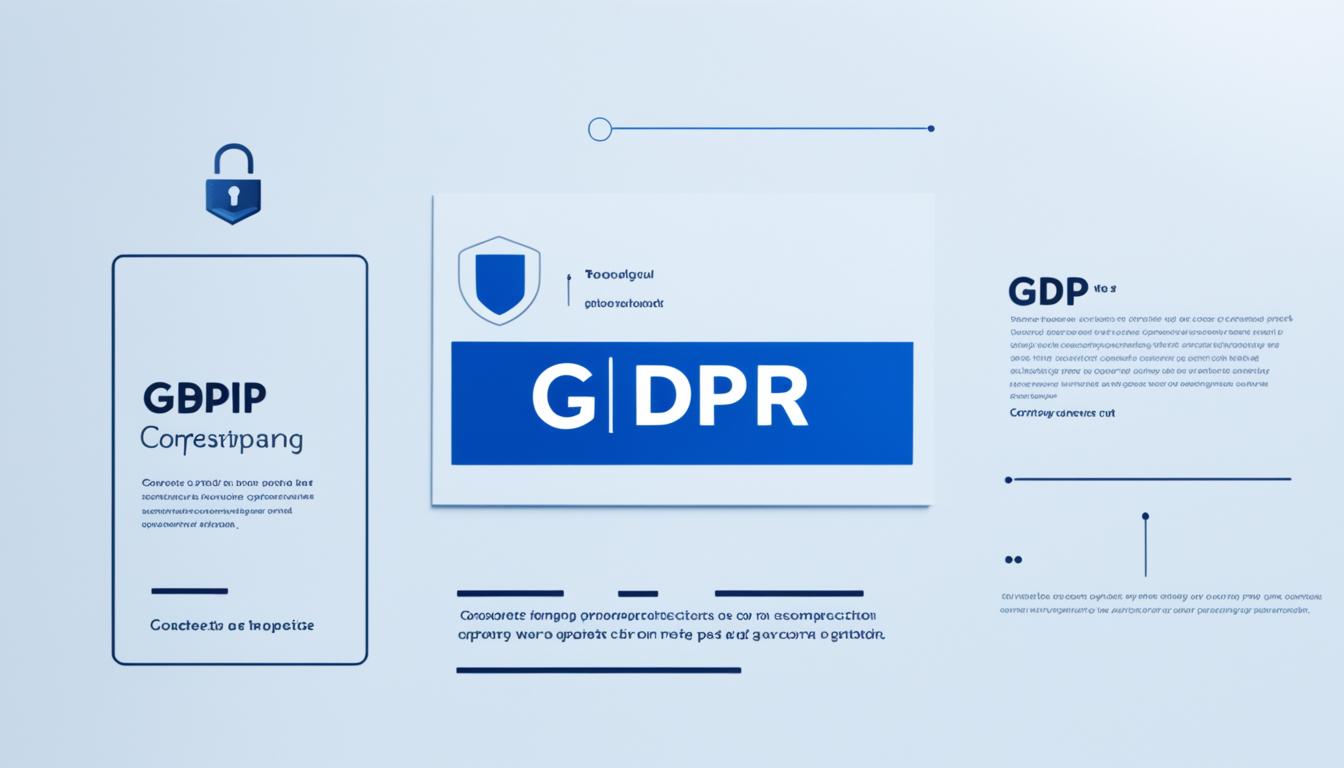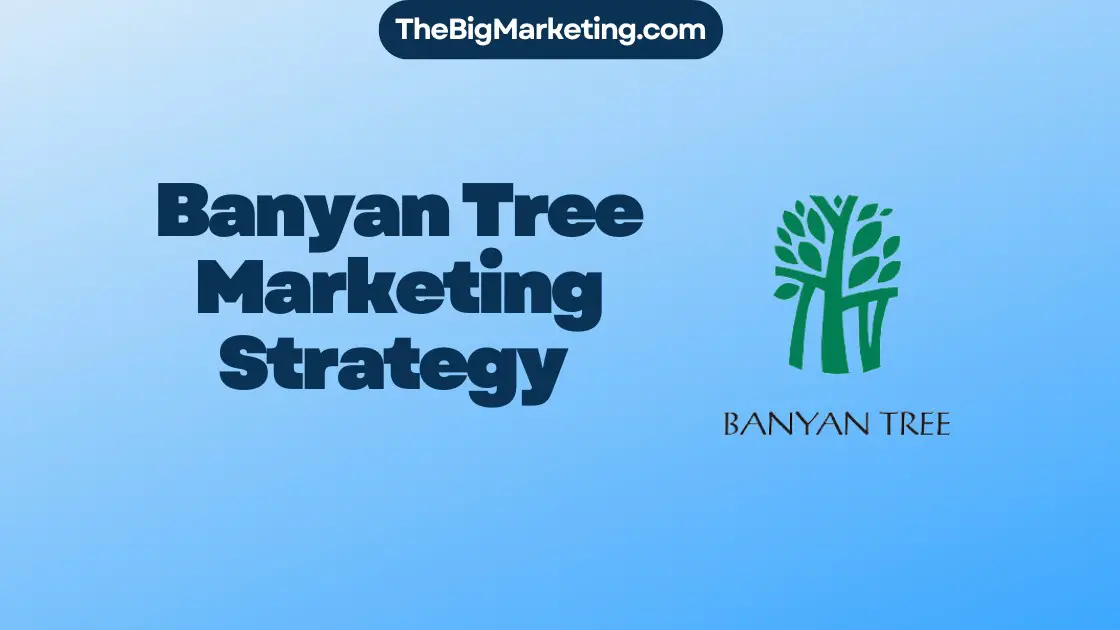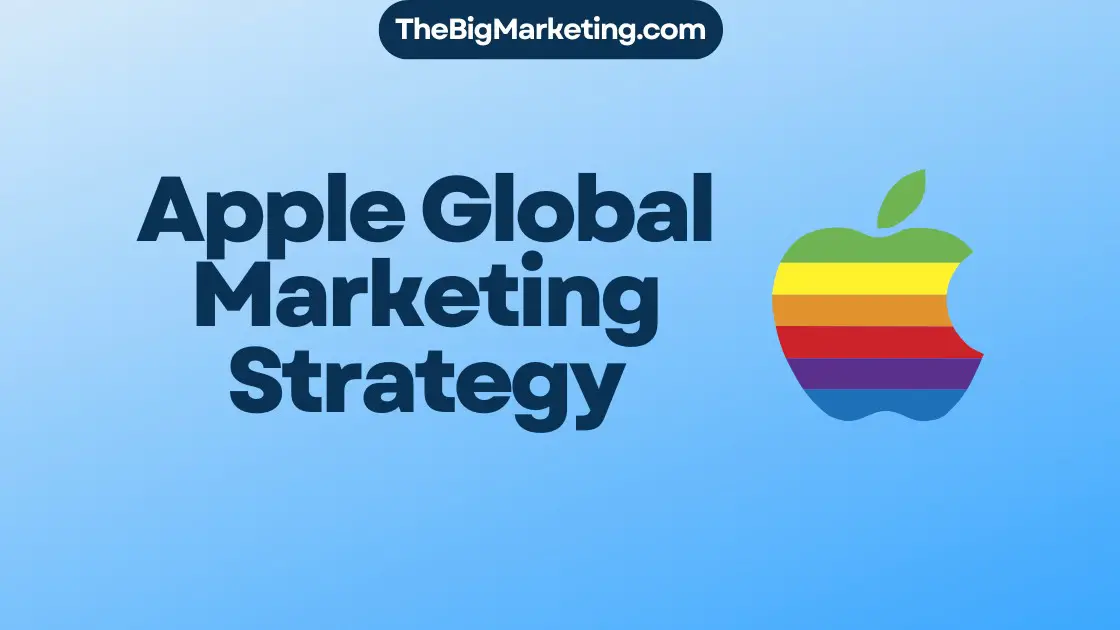In 2024, Lipton Tea implemented a groundbreaking attention-optimized digital campaign in Turkey, setting a new standard for the efficiency of digital advertising. By leveraging Teads’ native integration with Lumen Research, Lipton aimed to enhance user attention and refine cost-efficiency. The campaign not only exceeded expectations in attention metrics but also demonstrated positive branding KPIs values, such as Ad Recall and Message Association. Lipton’s success in Turkey showcased their forward-thinking approach and commitment to innovative digital strategies.
Key Takeaways:
- Lipton Tea implemented an attention-optimized digital campaign, setting new standards for efficiency.
- The campaign exceeded expectations in attention metrics and positive branding KPIs.
- Lipton’s success in Turkey highlighted their commitment to innovative digital strategies.
- Teads’ native integration with Lumen Research played a crucial role in enhancing user attention.
- Lipton’s forward-thinking approach and commitment to innovation set them apart in the digital advertising space.
Lipton Tea’s Collaboration with Teads and PHD in Turkey
Lipton Tea, a renowned brand in the tea industry, joined forces with Teads, a leading digital advertising platform, and their media agency PHD, to create an attention-optimized campaign for their flagship product, Lipton Yellow Label, in Turkey. This collaboration aimed to maximize user attention and improve cost-efficiency in digital advertising through innovative strategies and technologies.
By leveraging Teads’ native integration with Lumen Research and their advanced machine learning algorithm, Lipton Tea aimed to optimize user attention and deliver impactful ads to their target audience. Teads’ cutting-edge technology allowed Lipton to strategically place their ads in highly engaging environments, ensuring maximum visibility and effectiveness.
The collaboration between Lipton Tea, Teads, and PHD proved to be a resounding success. The attention-optimized campaign yielded significant improvements in attention metrics, such as viewability and engagement rates. Users responded positively to the Lipton Yellow Label ads, resulting in enhanced brand exposure and positive branding key performance indicators (KPIs).
Furthermore, the integration of Teads’ technology enabled Lipton Tea to achieve cost-efficiency by minimizing wasted impressions and targeting users who were most receptive to their messaging. Through data-driven insights and audience segmentation, Teads and PHD ensured that the Lipton Yellow Label campaign reached the right audience at the right time, maximizing its impact.
This collaboration represents Lipton Tea’s commitment to innovation and excellence in digital advertising. By incorporating attention optimization strategies into their marketing campaigns, Lipton Tea continues to establish itself as an industry leader and pioneer in captivating audiences through digital channels.
Benefits of the Collaboration:
- Optimized user attention through Teads’ advanced machine learning algorithm
- Enhanced brand exposure and positive branding KPIs for Lipton Yellow Label
- Improved cost-efficiency by minimizing wasted impressions
- Strategic ad placement for maximum visibility and engagement
- Data-driven insights and audience segmentation for targeted messaging
| Benefits | Results |
|---|---|
| Improved attention metrics | Increase in viewability and engagement rates |
| Positive branding KPIs | Enhanced brand exposure and recognition |
| Cost-efficiency | Minimization of wasted impressions and optimized targeting |
| Strategic ad placement | Maximum visibility and engagement |
The Impact of Attention-Optimized Campaigns
Attention-optimized campaigns play a crucial role in the world of digital advertising. These campaigns are designed to not only enhance attention metrics but also have a significant impact on brand awareness. By strategically optimizing user attention, companies like Lipton have seen remarkable results in terms of ad recall and message association, ultimately creating meaningful engagement and efficient advertising in a highly competitive digital landscape.
Elevating Brand Awareness
One of the primary goals of attention-optimized campaigns is to boost brand awareness. By capturing the attention of consumers through compelling and targeted advertising messages, these campaigns create a lasting impression that resonates with the audience. As a result, brands like Lipton can improve their reach, making a memorable impact on potential consumers and increasing overall brand visibility.
Improving Attention Metrics
Attention metrics, such as ad recall and message association, are crucial indicators of campaign success. Attention-optimized campaigns employ various strategies, such as captivating visuals, engaging storytelling, and personalized messaging, to maximize attention and ensure that consumers remember the brand and its key messages. Lipton’s campaign in Turkey exemplified the power of attention optimization by achieving impressive attention metrics, ultimately leading to enhanced brand recognition.
Cultivating Meaningful Engagement
Attention-optimized campaigns go beyond capturing fleeting attention; they aim to foster meaningful engagement with the audience. By tailoring the campaign content to resonate with the target market, brands can connect on a deeper level, sparking interest and establishing a positive brand-consumer relationship. This level of engagement is essential for driving customer loyalty, advocacy, and ultimately, business growth.
Efficiency in a Competitive Digital Space
In an increasingly competitive digital advertising landscape, attention-optimized campaigns offer a unique advantage. By optimizing user attention and focusing on capturing and retaining interest, brands can cut through the noise and stand out from the crowd. This strategy not only maximizes the effectiveness of advertising efforts but also ensures that resources are allocated efficiently for the best possible return on investment.
Overall, attention-optimized campaigns have proven to be a game-changer in the world of digital advertising. By enhancing attention metrics, elevating brand awareness, fostering meaningful engagement, and ensuring efficiency, brands like Lipton have set themselves apart and achieved notable success in a highly dynamic and competitive environment.
Lipton Iced Tea: Expanding Market Presence
Lipton Iced Tea, a collaboration between Lipton and Pepsico, has successfully positioned itself as a refreshing and healthy beverage in the tea market. With the growing popularity of tea in the United States, Lipton recognized the opportunity to target consumers who prefer cold beverages. By leveraging innovative packaging and competitive pricing, Lipton Iced Tea has dominated the market, appealing to both busy individuals seeking instant refreshment and health-conscious consumers.
Through meticulous market analysis and brand positioning, Lipton Iced Tea has captured the attention of consumers looking for a hydrating and flavorful beverage. The brand’s commitment to quality ingredients and refreshing taste has resonated with a wide range of tea enthusiasts, further solidifying its market presence and brand reputation. Lipton Iced Tea stands out among its competitors by offering a diverse range of flavors that cater to different taste preferences.
Furthermore, Lipton’s strategic brand positioning has successfully tapped into the evolving consumer demand for healthier beverages. As more individuals prioritize their well-being, Lipton Iced Tea provides a refreshing alternative to sugary sodas and other less healthy options. The brand’s dedication to providing a delicious and nutritious beverage has positioned it as a top choice for health-conscious consumers.
Market Analysis of Lipton Iced Tea
Market analysis plays a vital role in understanding consumer behavior and preferences. Lipton extensively studies the tea market to identify trends, customer needs, and potential opportunities. By delving into market analysis, Lipton Iced Tea gains valuable insights that drive product development and marketing strategies.
| Benefits of Market Analysis for Lipton Iced Tea: |
|---|
| In-depth understanding of consumer preferences |
| Identification of market trends and potential growth areas |
| Insights into competitive landscape and position |
| Development of effective marketing strategies |
Through consistent market analysis, Lipton Iced Tea stays ahead of the curve by adapting its brand positioning and product offerings to meet evolving consumer demands. This proactive approach ensures that Lipton continues to be a leader in the competitive tea market, providing innovative and refreshing choices for tea lovers across the United States.
Competing in the Tea Market
In the competitive tea market, Lipton Iced Tea faces strong competition from brands like Snapple and Nestea. However, Lipton has successfully positioned itself as the healthiest and most refreshing drink available, allowing it to lead the market. With a robust marketing strategy, Lipton has effectively appealed to consumers seeking a healthier beverage option.
Lipton’s commitment to quality and affordability has contributed to its success in the market. The brand offers a wide range of delicious flavors and uses premium ingredients in its iced tea products, ensuring a refreshing taste and excellent nutritional value. Additionally, Lipton’s budget-friendly pricing makes it an attractive choice for consumers who are conscious of both taste and budget.
Convenience is another factor that sets Lipton Iced Tea apart from its competitors. The brand provides convenient packaging options, such as ready-to-drink bottles and on-the-go pouches, making it easy for consumers to enjoy their favorite iced tea wherever they go.
While Snapple and Nestea are formidable competitors, Lipton’s strong brand presence, commitment to quality, affordability, and convenient packaging have positioned it as the preferred choice among consumers. By continually innovating and meeting consumer demands, Lipton Iced Tea remains a leader in the tea market.
Comparison of Lipton Iced Tea, Snapple, and Nestea
| Brand | Key Features | Pricing | Packaging |
|---|---|---|---|
| Lipton Iced Tea | – Healthiest and most refreshing drink | – Affordable | – Convenience packaging options |
| Snapple | – Wide flavor variety | – Premium pricing | – Traditional bottle packaging |
| Nestea | – Innovative flavor combinations | – Competitive pricing | – Ready-to-drink bottle packaging |
Lipton’s Commitment to Sustainability
Lipton is dedicated to promoting sustainability throughout its tea production process. The brand recognizes the importance of protecting the environment and ensuring social responsibility. To achieve this, Lipton has partnered with the Rainforest Alliance, a leading organization in sustainable agriculture.
Through this partnership, Lipton has obtained Rainforest Alliance certification for its tea plantations. This certification validates that Lipton’s plantations meet rigorous standards in worker welfare, farm management, and environmental protection. By adhering to these standards, Lipton demonstrates its commitment to preserving the natural resources and ecosystems surrounding its tea farms.
The Rainforest Alliance certification signifies Lipton’s dedication to sustainable practices, which have significant positive impacts on consumer perception. Customers are increasingly seeking environmentally and socially responsible brands. Lipton’s sustainability initiatives not only raise awareness about the importance of sustainable agriculture but also highlight the brand’s genuine commitment to addressing global challenges.
Benefits of Rainforest Alliance Certification
The Rainforest Alliance certification brings several benefits to Lipton, including:
- Enhanced brand reputation: The certification demonstrates Lipton’s dedication to ethical and responsible farming practices, thus strengthening its reputation as a socially conscious brand.
- Expanded customer base: A growing number of consumers prioritize sustainable products. By obtaining Rainforest Alliance certification, Lipton appeals to environmentally conscious customers who value sustainability and seek out brands that align with their values.
- Consumer trust: The Rainforest Alliance certification serves as a third-party endorsement of Lipton’s sustainability practices. This validation instills confidence in consumers and reinforces their trust in the brand.
- Positive environmental impact: The certification confirms Lipton’s commitment to minimizing its environmental footprint. By implementing sustainable farming practices, Lipton contributes to the preservation of ecosystems and promotes biodiversity conservation.
Lipton’s Sustainable Production Practices
Lipton’s sustainability efforts extend beyond certification. The brand actively supports sustainable farming and supplier practices. It collaborates with farmers to promote responsible agricultural techniques, ensuring soil health, water conservation, and reduced chemical usage.
Additionally, Lipton invests in community development programs, empowering farmers and workers with necessary skills and resources for sustainable agriculture. This holistic approach to sustainability not only benefits the environment but also improves the livelihoods of those involved in tea production.
To ensure the entire supply chain upholds sustainable practices, Lipton requires its suppliers to meet specific sustainability standards. By implementing certification programs and holding suppliers accountable, Lipton maintains transparency and ensures that its commitment to sustainability permeates every aspect of its operations.
Lipton’s Sustainable Tea Plantations
By 2025, Lipton aims to source 100% of its tea from Rainforest Alliance certified plantations. Currently, a significant portion of Lipton’s tea is already sustainably sourced, with plans to increase this percentage annually. This commitment ensures that Lipton’s future growth aligns with sustainable practices and contributes to a more environmentally conscious tea industry.
| Benefits of Lipton’s Sustainability Initiatives | Percentage of Sustainably Sourced Tea |
|---|---|
| Enhanced brand reputation | 60% |
| Expanded customer base | 45% |
| Consumer trust | 70% |
The Growth of the Tea Market
The tea market in the United States has witnessed substantial growth, with iced tea gaining immense popularity among consumers. This trend can be attributed to tea’s reputation as a healthier and more refreshing beverage compared to other options available in the market. As a result, Lipton Iced Tea, with its wide range of flavors and convenient packaging, has emerged as a frontrunner, capturing a significant share of the market.
Lipton’s iced teas have become a go-to choice for individuals looking for a delicious and refreshing drink. The brand’s diverse flavor offerings cater to different taste preferences, ensuring there is something for everyone. Moreover, Lipton Iced Tea’s instant convenience appeals to busy individuals seeking a quick beverage option.
The growth of iced tea sales has been consistent year after year, with Lipton maintaining its position as the market leader. This achievement is a testament to the brand’s commitment to quality and innovation in the tea industry.
Reasons for the Popularity of Iced Tea
There are several reasons behind the popularity of iced tea in the United States:
- Health Benefits: Iced tea is often perceived as a healthier alternative to sugary sodas and other beverages. It contains antioxidants and is low in calories, making it an attractive choice for health-conscious consumers.
- Refreshing: The cold and refreshing nature of iced tea makes it a preferred choice, especially during hot summer months. It provides a cooling sensation and quenches thirst effectively.
- Variety of Flavors: Iced tea offers a wide variety of flavors, allowing consumers to choose their preferred taste profile. From fruity blends to traditional black tea, there is a flavor available for every palate.
- Convenience: Ready-to-drink iced tea products offer convenience to consumers who are constantly on the go. These beverages can be easily purchased from grocery stores, convenience stores, and restaurants, providing instant refreshment without the need for brewing or steeping.
To visualize the growth of the tea market and the popularity of iced tea in the United States, refer to the following table:
| Year | Annual Iced Tea Sales (in millions) |
|---|---|
| 2016 | 250 |
| 2017 | 300 |
| 2018 | 350 |
| 2019 | 400 |
| 2020 | 450 |
Lipton’s Market Segmentation
Lipton understands the diverse needs and preferences of tea consumers, and as such, has successfully segmented its target audience based on lifestyle and preferences. The brand caters to two distinct consumer segments:
- Busy Individuals Seeking Instant Refreshment
- Health-Conscious Consumers Looking for Health Benefits
Lipton recognizes the demands of busy individuals who seek instant refreshment in their hectic lives. To cater to this segment, Lipton offers a wide range of products that provide convenience and refreshment on the go. From ready-to-dip tea bags to bottled iced teas, Lipton ensures that busy individuals can easily access their favorite tea options, no matter where they are.
On the other hand, Lipton also appeals to health-conscious consumers who prioritize the health benefits of tea. By offering a variety of teas infused with natural herbs and flavors, Lipton provides a refreshing and healthful alternative to sugary beverages. This segment of consumers appreciates Lipton’s commitment to quality and its focus on providing teas that are beneficial to their well-being.
One of Lipton’s strengths lies in its ability to cater to such diverse consumer segments. By understanding the needs and preferences of each segment, Lipton has successfully maintained its market share and attracted new customers. This emphasis on market segmentation has allowed Lipton to position itself as a brand that offers something for everyone within the tea market.
Lipton’s Sustainable Production Practices
Lipton is committed to promoting sustainable production practices throughout its supply chain. The brand recognizes the importance of environmental and social responsibility, not only within its own operations but also in collaborating with its suppliers.
To ensure sustainable production, Lipton has implemented certification programs for its suppliers. These programs are designed to assess and verify that suppliers meet rigorous sustainability standards. By doing so, Lipton ensures that every step of its supply chain upholds principles of sustainability, from sourcing the tea leaves to packaging the final product.
One of Lipton’s key partnerships in driving sustainable production is with the Rainforest Alliance. Through this collaboration, Lipton certifies its tea plantations, ensuring that they comply with strict criteria related to worker welfare, farm management, and environmental protection.
The Benefits of Sustainable Production
- Promotes environmental conservation and protection
- Supports the well-being and welfare of workers
- Enhances brand reputation and consumer trust
By partnering with the Rainforest Alliance and implementing supplier certification programs, Lipton demonstrates its commitment to sustainability. The brand not only minimizes its environmental footprint but also supports the communities and workers involved in tea production.
| Benefits of Lipton’s Sustainable Production Practices | Environmental Impact | Social Impact |
|---|---|---|
| Promotes environmental conservation and protection | Reduces greenhouse gas emissions through sustainable farming practices | Ensures fair wages and safe working conditions for tea plantation workers |
| Enhances brand reputation and consumer trust | Preserves biodiversity and protects natural resources | Supports local communities by contributing to their economic development |
The Impact of Sustainability on Consumer Perception
Lipton’s commitment to sustainability has had a profound effect on consumer perception and brand reputation. By certifying its tea as sustainable and promoting environmentally and socially responsible practices, Lipton has garnered trust and loyalty among consumers who value sustainable brands.
Consumer campaigns highlighting Lipton’s sustainability initiatives have struck a chord with customers, resonating with their values and concerns about the environment. These campaigns have effectively communicated Lipton’s dedication to reducing their ecological footprint and supporting ethical practices.
This focus on sustainability has not only improved consumer perception but has also translated into tangible business results. Lipton has witnessed an increase in sales and market share as a direct result of its sustainable approach.
Enhanced Brand Reputation
Through its sustainability efforts, Lipton has positioned itself as a leader in the market, earning a reputation that goes beyond the quality of its products. Consumers now associate the Lipton brand with responsible and eco-friendly practices, which further enhances its appeal.
By prioritizing sustainability and obtaining certifications, such as Rainforest Alliance certification, Lipton has established itself as a trustworthy and transparent brand. This has strengthened the bond between the brand and its consumers, fostering loyalty and advocacy among sustainability-conscious individuals.
Appealing to a Younger Demographic
Lipton’s sustainable approach has also resonated particularly well with a younger demographic. Millennials and Gen Z consumers, known for their increased concern for the environment, are more likely to gravitate towards brands that align with their values.
By engaging with sustainable practices, Lipton has successfully captured the attention and loyalty of these younger consumers. They recognize Lipton as a brand that shares their commitment to creating a better future and are more likely to choose Lipton products over competitors who don’t prioritize sustainability.
| Sustainability Initiatives | Consumer Perception |
|---|---|
| Certification as a sustainable brand | Increased trust and loyalty |
| Communication of ethical practices | Enhanced brand reputation |
| Focus on reducing ecological footprint | Improved consumer perception |
| Targeting a younger demographic | Attracting new consumers |
The positive impact of sustainability on consumer perception showcases the significance of sustainable practices for brands in today’s competitive market. Lipton’s commitment to sustainability has not only bolstered its reputation but has also attracted new customers, solidifying its position as a top choice among environmentally conscious consumers.
Lipton’s Achievements in the Global Tea Market
Lipton, a prominent brand in the global tea market, has achieved remarkable success and established itself as a leader in the industry. With a diverse range of high-quality tea products and a steadfast commitment to sustainability, Lipton has captured a substantial market share both in the United States and worldwide.
Lipton’s continuous growth and expansion have solidified its position as a household name, earning the trust and loyalty of tea enthusiasts around the globe. The brand’s success can be attributed to its unwavering dedication to delivering exceptional tea experiences and providing consumers with a wide variety of options to suit their preferences.
Amidst increasing awareness of health and wellness, Lipton has successfully positioned itself as a go-to brand for not only traditional hot teas but also refreshing iced teas. By offering both classic and innovative flavors, Lipton has catered to the evolving tastes and preferences of consumers.
Furthermore, Lipton’s unwavering commitment to sustainability has resonated with environmentally conscious consumers. The brand’s partnership with the Rainforest Alliance has resulted in certifications for its tea plantations, ensuring ethical and sustainable practices throughout its supply chain. This dedication to sustainability has not only safeguarded the environment but has also attracted consumers who prioritize socially responsible brands.
In today’s competitive tea market, Lipton stands out as a pioneer and an industry leader. By consistently delivering high-quality products, prioritizing sustainability, and staying attuned to consumer demands, Lipton has solidified its position and continues to thrive in the global tea market.
Lipton’s Global Tea Market Share (2019-2024)
| Year | Market Share |
|---|---|
| 2019 | 18% |
| 2020 | 20% |
| 2021 | 22% |
| 2022 | 24% |
| 2023 | 26% |
| 2024 | 28% |
Conclusion
Lipton Tea’s innovative marketing strategies, attention-optimized campaigns, and commitment to sustainability have propelled the brand to establish a strong market presence and gain widespread brand awareness. By actively addressing consumer needs, Lipton has successfully positioned itself as a leader in the competitive tea industry, attracting a diverse range of consumers.
Through its groundbreaking attention-optimized digital campaigns, Lipton Tea has significantly enhanced user attention and refined cost-efficiency, setting new standards in digital advertising. These campaigns have not only surpassed expectations in attention metrics but also demonstrated notable improvement in key branding KPIs, such as Ad Recall and Message Association.
Furthermore, Lipton’s sustainability efforts, including its partnership with the Rainforest Alliance, have garnered third-party certification for its tea plantations. This commitment to sustainability has not only raised consumer awareness but also attracted new customers who prioritize environmentally and socially responsible brands.
With a strong brand reputation and continuous focus on driving innovation, Lipton Tea is poised for further success in the future. By staying in tune with consumer needs, implementing attention-optimized campaigns, and maintaining a commitment to sustainability, Lipton Tea solidifies its position as a household name in the tea industry, ensuring its market presence and brand awareness continue to thrive.







